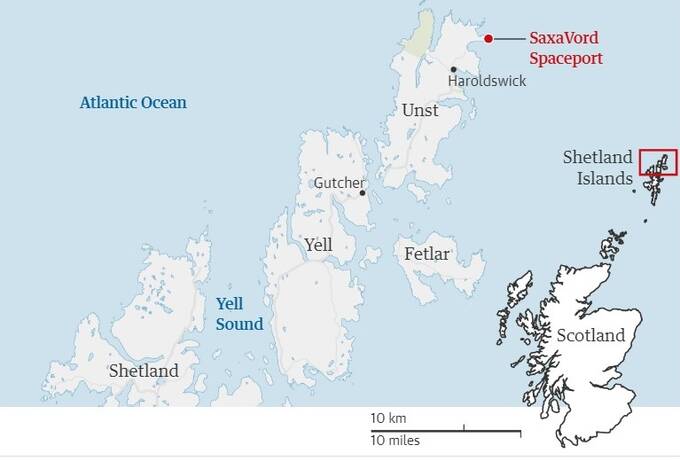Rocket explosion during testing at the new UK spaceport in Shetland
A rocket company has vowed to return to regular operations “as soon as possible” after an explosion during a test at the UK’s new spaceport in Shetland.
The test was carried out by German company Rocket Factory Augsburg (RFA) which hopes to make the first UK vertical rocket launch into orbit.
Monday’s nine-engine test, which took place at SaxaVord Spaceport on the island of Unst, was one of the trials due to be carried out before progressing to launch.
RFA said an “anomaly” had led to “the loss of the stage” but there were no injuries.
“The launch pad has been saved and is secured, the situation is under control, and any immediate danger has been mitigated.”
RFA, which is based in Augsburg, Germany, said it was working with the spaceport and authorities to find the cause of the failure.
The company’s spokesperson said: “We develop iteratively with an emphasis on real testing.
“This is part of our philosophy and we were aware of the higher risks attached to this approach. Our goal is to return to regular operations as soon as possible.”
It comes three months after the site’s first rocket test was carried out and declared a success.
On that occasion, RFA fired the engines for eight seconds before shutting down.
Unst, which has about 650 inhabitants, is at the northernmost tip of the British Isles and was one of the first Viking outposts in the North Atlantic. Its location means that rockets lifting off from the site do not need to pass over populated areas, unlike those launched from other sites, which have to perform dog-leg manoeuvres, limiting the weight of the payload they can carry.
Late last year, the Civil Aviation Authority (CAA) gave approval for the first rockets to take off into space from the island.
It will allow up to 30 satellites and other payloads to be launched into commercially valuable polar, sun-synchronous orbits, which are in high demand from satellite operators for communications and Earth observation.
Read more similar news:
Comments:
comments powered by Disqus



































